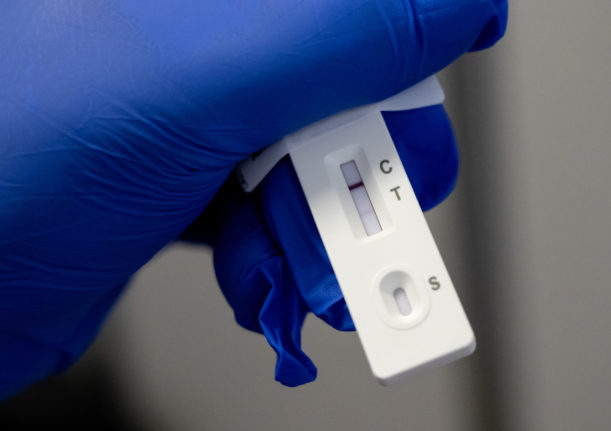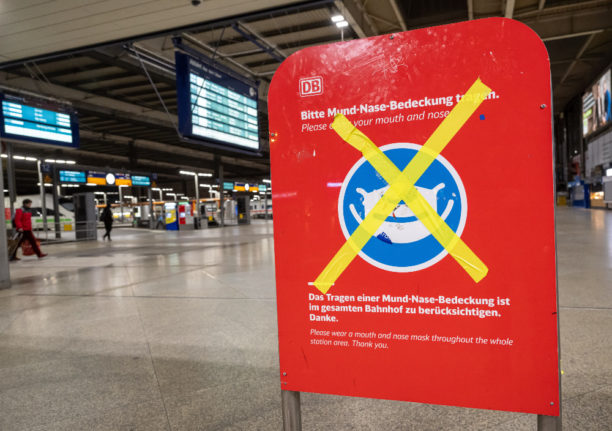The German Health Ministry announced on Thursday that most people would have to pay a contribution rate of €3 to get a Covid rapid test, while they would remain free of charge for certain vulnerable groups.
But chairman of the National Association of Statutory Health Insurance Physicians (KBV), Andreas Gassen, called for an end to so-called Covid Bürgertests.
“These nonsensical tests must be abolished,” Gassen told Bild newspaper. “They are far too expensive, the bureaucratic effort is huge and the epidemiological significance is zero.”
It is a “completely pointless exercise to test healthy people with (tests of) questionable quality for no reason,” Gassen said.
Gassen said, however, that PCR tests carried out on patients with symptoms are important to detect Covid infections.
If people in Germany have Covid symptoms, they can contact their GP who can arrange for a PCR test that is covered by health insurance.
According to the new test regulation, which came into force on Thursday, the Bürgertests, which were previously free of charge for everyone, will now only be available for free to a limited extent.
READ ALSO: The new rules on getting a Covid test in Germany
For instance, people who can’t get vaccinated for medical reasons can still get a free rapid test, as well as children up to five-years-old and some at-risk groups.
Other people will be charged €3 per test, and under the new rules people have to state why they are getting the test.
Health Minister Karl Lauterbach said he hoped this would help combat fraud as well as cut down on the cost to the taxpayer.
However, in a letter to Lauterbach, the heads of the 17 associations of statutory health insurance doctors said they “do not want to be responsible for making payments on invoices whose accuracy they cannot even begin to check”.
They said they “will no longer be able to bill and pay for the Bürgertests in the future”.
According to research by Spiegel, more than €1 billion was taken by fraudsters for Covid tests that never took place – or test centres that did not even exist.
READ ALSO: Germany starts charging for Covid tests
On Thursday, Health Minister Lauterbach defended the new test regulation. He told broadcaster ZDF that he would have liked to keep the tests completely free of charge, “but we could no longer afford that”.
He said the additional bureaucratic effort for the tests is “manageable”.
Lauterbach also told RTL Direkt that the tests would now be more meaningful. “If everyone can just get tested as often as they want, without there being a reason for it, then too many tests will also be negative, or if they are positive, then often false positives.
“We have limited that so that the tests are more meaningful.”
In a tweet on Friday morning, Lauterbach said the Health Ministry was “already in constructive talks” with the the Association of Statutory Health Insurance Physician on the billing of tests.
Mit der KBV und Herrn Gassen sind wir schon in konstruktiven Gesprächen zur Abrechnung der Bürgertests. Die Tests werden bleiben und ab heute korrekt abgerechnet. Die sind nicht sinnfrei sondern helfen, dass Infizierte andere nicht anstecken. https://t.co/hdoEYYd2Qo
— Prof. Karl Lauterbach (@Karl_Lauterbach) July 1, 2022
“The tests will remain, and will be invoiced correctly as of today,” he said, adding that they were “not pointless but help to prevent infected people from infecting others”.
A spokesperson for the Health Ministry told Bild: “The tests are not nonsensical, but save lives by breaking chains of infection. We assume that the KVs (associations) as corporations under public law, will continue to fulfil their mandate to bill and spot-check the test centres.”



 Please whitelist us to continue reading.
Please whitelist us to continue reading.
Member comments